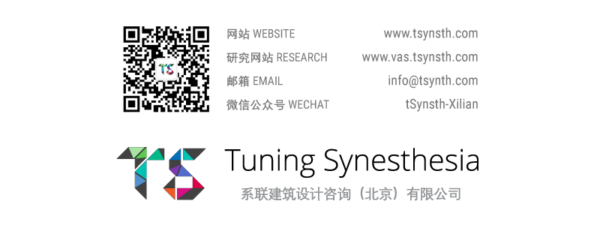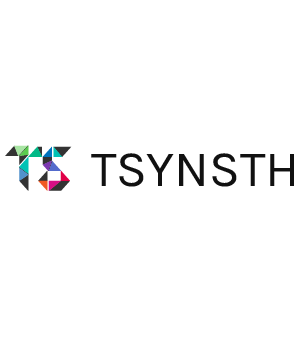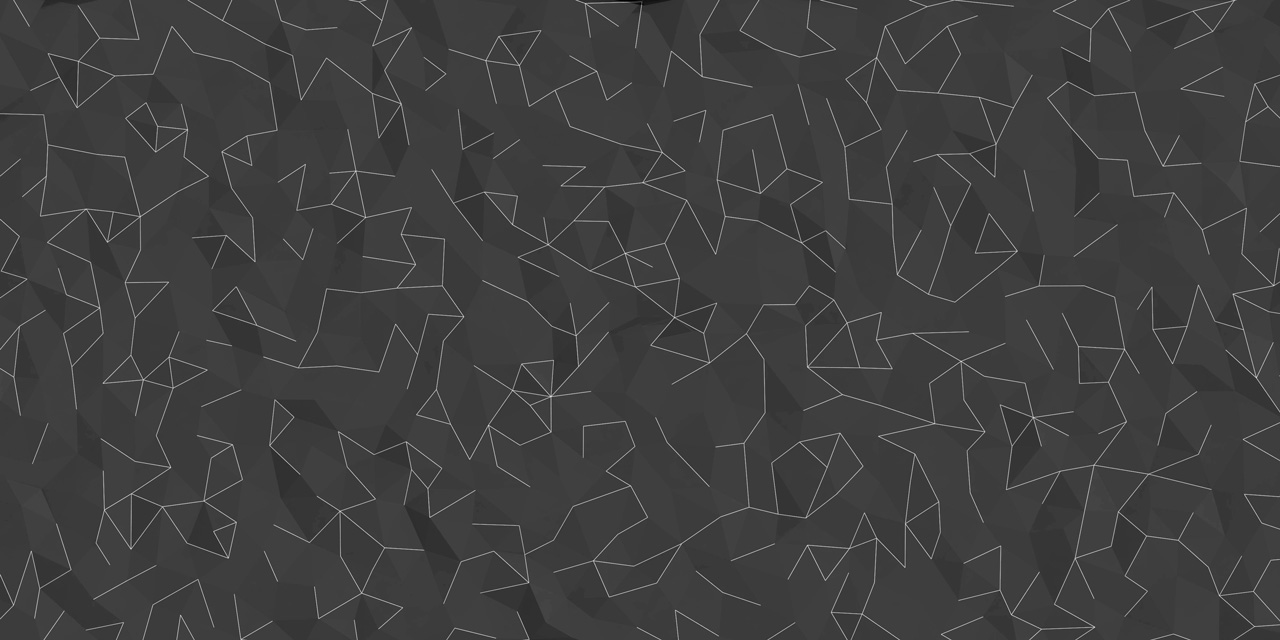2016 VAS 运算化研究坊回顾

While academic research in computational design is widespread and accessible, there are many people who still struggle with self-teaching tools especially when looking into the practical usage of design in their professional careers. We are concerned by the current situation where projects become excessive computer-driven due to a lack of balanced skills and proper design methodologies in practice, which leads to a lack of articulation of design intension. Our mission in academic practice is to emphasize the importance of having a solid foundation and clear methodology when using computational design tools, since design development requires us to spend time on more than just the technical setup.
现在运算化设计的学术研究已经被认知与推广,但实践与学术仍存在差别,许多人还得自己研究与应用。由此导致了许多项目开始过多依赖于计算机来设计,影响了技能与设计思路间的平衡,以至于设计意图丢失。我们的目的则是通过一系列的学术实践与研究促使在设计中拥有清晰的思路和明确的立场来使用运算化设计工具,花费大量时间来深化设计而不是停留在技术层面。
Our interest has always been the divide between computational design practice and the academic approach to design. VAS (Variations of Applied Systems) (http://www.vas.tsynsth.com) started as an online research platform in 2012. Our focus has been an array of output design methodologies and systems, as well as their applications in design. Since then, we have accumulated more research and, last year, we had a chance to develop a computational design workshop series in Beijing, China. This workshop series helped us to further promote our research and progress even further in our exploration. To read more about our mission, please visit here the following link: http://www.vas.tsynsth.com/about
我们倾向于通过运算化设计实践与学术性研究应用于设计。VAS(变量与应用系统)网站平台的搭建源于2012。我们专注于研究一系列设计输出端的方法和系统及其设计应用。至今我们积累了大量的研究成果,于去年在北京举办了一系列的运算化设计研究坊。系列研究坊有助于提升我们的研究成果、推进设计进程以及促进对未来的探索。想了解更多关于我们的内容,请登入网址:http://www.vas.tsynsth.com/about

At every installment in the series, our workshop was organized into phases. The most common structure was as follows: Phase 1 – Rhino, Phase 2 – Grasshopper, Phase 3 – System, Phase 4 – Coding, Phase 5 – Fabrication, Phase 6 – Design, and Phase 7 – Visualization. With this said, every individual installment had its own focus and priorities, thus all seven phases where not necessarily covered every time.
我们的工作坊设立了多个阶段:阶段1 – Rhino,阶段2 – Grasshopper , 阶段3 – 系统 , 阶段4 – 编程 , 阶段5 – 建造 , 阶段6 – 设计 , 阶段7 – 成果表达。每一个阶段都有其着重点和特点,因此该七个阶段会因需而做适当的内容调整
During each phase, our focus was on directing students to establish a solid logic in the form of algorithms that could help them generate variations in their designs and control the target quality.
我们的目标是引导学生通过每个设计阶段能以运算化形式建立设计的逻辑关系,帮助他们生成一系列的设计多样性表达且能更好地控制设计结果的质量。
Student Achievements
学生成果
We are very happy to present the best of our student works as a summary of our VAS 2016 workshop series.
VAS 2016年系列研究坊优秀学生作品
以下是2016年度的运算化研究坊成果(详细文章请浏览网页:http://www.vas.tsynsth.com/news/)
Rhino Tutorial Course 犀牛软件


Grasshopper Tutorial Course GH插件


System and Design Prototyping 系统与原型设计

Python Coding 编程

Fabrication and 3D print 铸造与3D打印

Design studio 方案设计


VAS Series Overview
VAS系列回顾
There were a total of four VAS installments last year.
这些是2016年VAS系列研究坊。
2016.1.11 – 2.4 Winter Workshop 冬季坊 tSynsth + JRYG 系联+匠人营国
2016.5.28 – 7.17 Spring Workshop 春季坊 tSynsth + gooood.hk 系联+谷德
2016.7.19 – 8.19 Summer Workshop 夏季坊 tSynsth + gooood.hk 系联+谷德
2016.9.29 – 10.7 Fall Workshop 秋季坊 tSynsth 系联

The first installment of the series was held last winter (January 2016) in collaboration with an educational organization called JRYG. The venue was Beijing Forest University and welcomed around 50 students from all over China, who were mostly studying architecture or landscape design. There were two courses offered (standard and intensive), as well as four guest lectures presented by Jordan Kantar, Duo Ning, Trushit Vyas, and Charles Kwan with Hinki Kwong.
去年冬季(2016年一月)我们与匠人营国教育机构合作在北京林业大学举办了第一届工作坊。有近50名来自中国各地的建筑与景观学生。课程包含两种方式(全程班与快速班),并且举办了四场嘉宾讲座(Jordan Kantar,,朵宁,Trushit Vyas,Charles Kwan 与 Hinki Kwong)。

After the winter installment, we participated in a collaboration with gooood.hk for the next two installments of our workshop. The second and third took place during the spring and summer of 2016. In the spring, we held a workshop in Sanlitun SOHO, where the majority of students were professionals from different design firms. We worked together on relatively advanced topics, including the GH plugin Kangaroo (taught by guest teacher Martin Miller from AntiStatics) and python coding. Guest lecturers included Duo Ning, Kui Yu, Martin Miller, and Zheng Mo.
冬季工作坊之后,我们与谷德设计网(gooood.hk)合作举办了接下来的两个工作坊。第二、三个工作坊举办于2016年的春季和夏季。春季工作坊在三里屯SOHO举办,学生主要来自北京各大院的在职员工。我们一同推进一些相对更为进阶的内容,包括Grasshopper中的Kangaroo插件的使用(来自非静止建筑设计AntiStatics的Martin Miller)以及Python的编程,邀请的嘉宾讲座(朵宁、于魁、Martin Miller与郑默)。

The summer 2016 workshop was one of the best installments we ever had. The venue was in Chaoyangmen SOHO and the workshop itself lasted over a month, in which time 40 students learned a full set of computational design skills and methodologies, including molding and digital fabrication using a 3D printer. In addition to our collaboration with gooood.hk, we also worked with AntiStatics to develop the curriculum for the fabrication phase. As a result, many students were able to create impressive portfolios. The guest lectures were presented by Chris Precht, Jordan Kantar, and Wang Zheng with Liu Li.
为期一个月的夏季工作坊,有将近40名学生在这一个月完整学习了运算化设计技能和设计方法,包括铸模和三维打印机的数字化建造。此次工作坊我们与谷德设计网(gooood.hk)合作且与非静止建筑设计(AntiStatics)在建造课程阶段共同教学。最终许多学生能创作出许多令人印象深刻的作品集,该夏季工作坊也是2016系列中最优秀的一届。课程中的嘉宾讲座(Chris Precht, Jordan Kantar, 王峥和刘力)。

The final installment of 2016 was shorter than the prior installments, yet was just as intensive and attended by a smaller group of students. In addition, some past students joined as teaching assistants and Dora Lam gave students a lecture to accelerate the learning progress.
2016年最后的工作坊比之前的工作坊时间都要短,课程时间紧迫,学生则以组的形式完成课程内容。并且也有之前的学员作为助教参与到这届工作坊中,Dora Lam 的讲座促进和推动了整个工作坊的学习进度。
Workshop 课堂照片

Directors and Guest Lectures 主导师及嘉宾讲座
Workshop Director Chie Fuyuki 主导师冬木千枝
Chie Fuyuki (the director of the VAS workshop) invited 11 design professionals from different firms in Beijing as guest lecturers and curated each installment of the workshop series. The guest lectures were aimed at providing students with realistic and helpful insights on how computational skills, methodologies, and concepts can be utilized and play different roles in practical usage.
Chie Fuyuki(VAS 工作坊主导师)邀请了来自11个在北京不同领域不同公司的嘉宾在各个研究坊提供讲座。这些嘉宾的讲座更多的是给学生传授如何将运算化技能、设计方法和概念应用于实际项目环境中,并且如何从不同角度切入实践,予以应用。


Team 教师与助教:

Other Events and Lecture 其它,活动与演讲

2016.7.10 Open Class系联参数化设计应用讲座及公开课

2015.11.05 – Lecture at The 7th International Art& design Academic Month of Tsinghua University
第七届清华国际艺术.设计学术月讲座
(详情请浏览:http://www.vas.tsynsth.com/review-lecture-qinghua-art-151105/)
如果你对运算化设计和研究特别感兴趣,请关注我们的研究网站:vas.tsynsth.com
即将推出:2017土人学社运算化工作坊回顾



